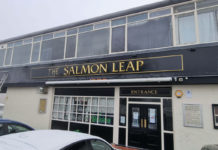As the industry suffers the impacts of COVID-19, livelihoods are at risk without help, writes the SLTA’s Colin Wilkinson

TAKE a few minutes and cast your mind back 12 months.
The SLTA’s Summer 2019 Industry Insight Survey of 500 outlets revealed that whilst there had been a slight slowdown in the market, against a buoyant market in 2018, Scotland’s pub and bar operators remained optimistic for the rest of 2019 and into 2020. 72% of businesses anticipated growth or stability, with local food and drink and online bookings being key drivers of the market.
The key challenges for the industry were Brexit, national and local legislation and increasing operating costs.
Fast forward to today and our industry sector is, let’s make no bones about it, quite simply in crisis.
COVID-19 has been devastating for us all personally, but for an industry based on socialising it has and will continue to be catastrophic.
Yes, this industry has in the past and can in the future adapt to take on anything that is thrown at it, but it needs the tools to ride the tempest that hit us at the end of March.
Even in these unprecedented times, how can any business be expected to operate and survive in a theatre where there is a surfeit of guidance, compliance requirements, statutory regulations, mandatory conditions and even “guidance on the guidance”, which are, on most occasions, introduced with little or even no warning?
Conflicting guidance with other industry sectors is also causing problems for the licensed trade, and the SLTA and other official trade bodies are working with the Scottish Government for a more joined up approach to the issuing of future guidance.
The recent ban on indoor background music and the muting of televisions was a bitter blow for the industry and reports of substantial drops in footfall are being reported across the country.
The recent outcome in Aberdeen reflects the difficulties faced by a ‘social’ industry and highlights the need for ongoing sector-specific support through an extension of the furlough scheme plus additional grant aid for the industry’s survival – and for the protection of the jobs it provides.
The initial government support for businesses was unexpected and, at that time, a lifeline for some businesses.
However, a significant number of larger businesses, including late night operators, were excluded from the grant scheme that was introduced.
These businesses are on the precipice of business failure if grant aid is not forthcoming now and even for the businesses that did get some form of initial assistance, many are also on the brink of financial collapse.
With only four weeks left of the summer season, and the quieter autumn and winter periods approaching, governments must review the support needs of the industry now if it is to rebuild and survive into 2021 and beyond.
In this ever-changing rollercoaster of government guidance and regulation, what more might be on the cards to control the spread of the virus and avoid risky behaviours and practices?
Just some of the measures already being considered are:
- Measures to limit the number of premises visited in one day – customers are already being advised against pub crawl activity in revised customer guidance.
- Entry cut-off points – businesses may restrict entry to premises after a certain time to limit late evening transit between premises.
- Face coverings within premises for customers when not eating or drinking ie. arrival/departure and when using shared facilities.
Only time will tell.
Colin Wilkinson is the managing director of the Scottish Licensed Trade Association (SLTA).























